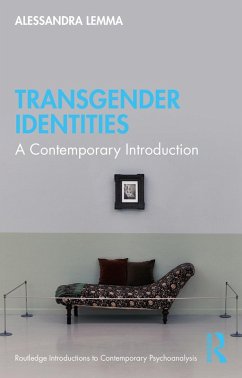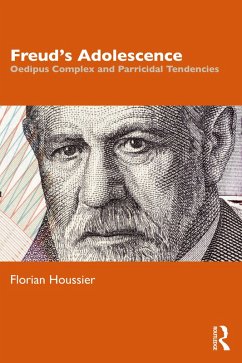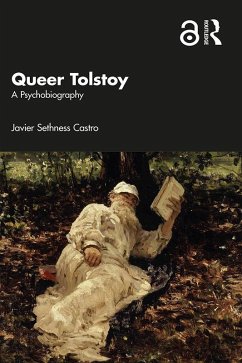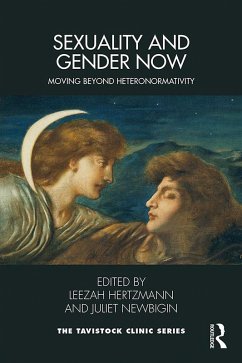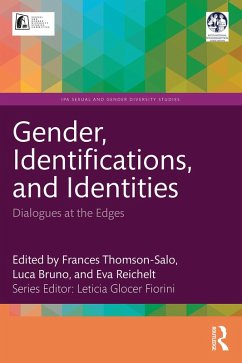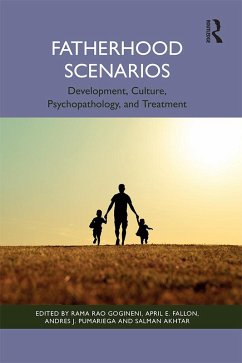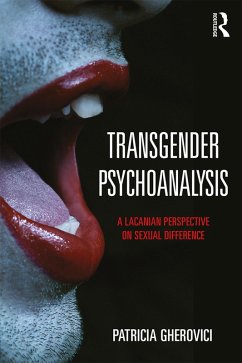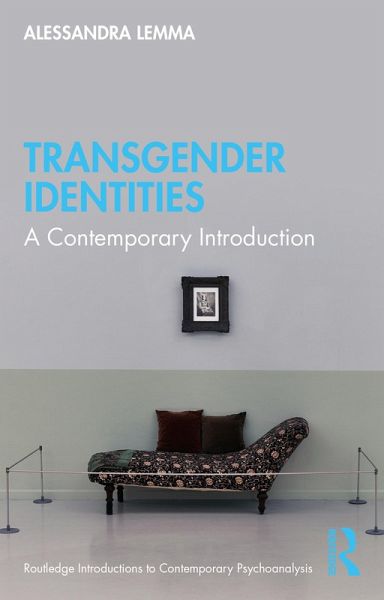
Transgender Identities (eBook, PDF)
A Contemporary Introduction
Versandkostenfrei!
Sofort per Download lieferbar
22,95 €
inkl. MwSt.
Weitere Ausgaben:

PAYBACK Punkte
11 °P sammeln!
This important new book by Alessandra Lemma provides a succinct overview of psychoanalytic understandings, approaches and controversies around transgender identifications.Illustrated with case vignettes, Lemma provides an up-to-date synthesis of current research and a critical overview of psychoanalytic approaches to transgender identities, distilling some of the contemporary controversies about how to approach the topic in the consulting room. Lemma also outlines a psychoanalytically informed ethical framework to support clinicians working with individuals who request medical transitioning an...
This important new book by Alessandra Lemma provides a succinct overview of psychoanalytic understandings, approaches and controversies around transgender identifications.
Illustrated with case vignettes, Lemma provides an up-to-date synthesis of current research and a critical overview of psychoanalytic approaches to transgender identities, distilling some of the contemporary controversies about how to approach the topic in the consulting room. Lemma also outlines a psychoanalytically informed ethical framework to support clinicians working with individuals who request medical transitioning and distils the ethical challenges faced by clinicians in light of the current emphasis on gender affirmative care.
Part of the Routledge Introductions to Contemporary Psychoanalysis series, this book is of great importance for psychoanalysts in practice, academics and all those with an interest in transgender identities and mental health.
Illustrated with case vignettes, Lemma provides an up-to-date synthesis of current research and a critical overview of psychoanalytic approaches to transgender identities, distilling some of the contemporary controversies about how to approach the topic in the consulting room. Lemma also outlines a psychoanalytically informed ethical framework to support clinicians working with individuals who request medical transitioning and distils the ethical challenges faced by clinicians in light of the current emphasis on gender affirmative care.
Part of the Routledge Introductions to Contemporary Psychoanalysis series, this book is of great importance for psychoanalysts in practice, academics and all those with an interest in transgender identities and mental health.
Dieser Download kann aus rechtlichen Gründen nur mit Rechnungsadresse in A, B, BG, CY, CZ, D, DK, EW, E, FIN, F, GR, HR, H, IRL, I, LT, L, LR, M, NL, PL, P, R, S, SLO, SK ausgeliefert werden.




